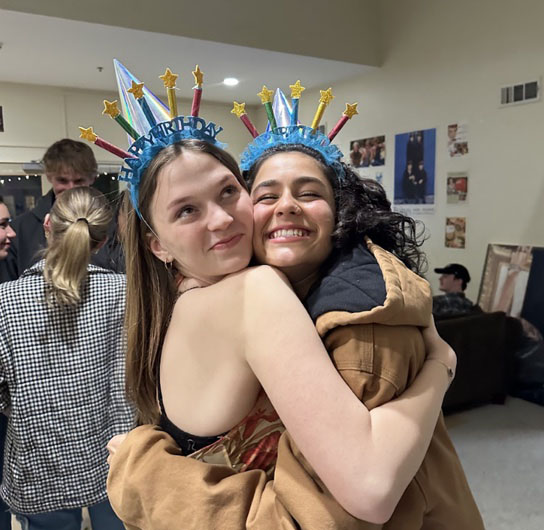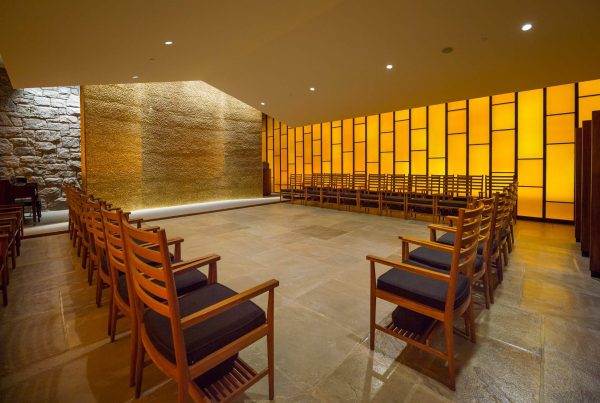The Future of Greek Life
For an institution so heavily rooted in tradition – from the love of the number 13 to Spring Party Weekend to chipwiches at the end of every campus tour – Greek Life at Colgate has gone through a great deal since its beginnings in 1856 and it only continues to evolve.
Considering the involvement rate of nearly 40 percent among eligible students, larger than average sorority pledge classes and the decreased number of Greek letter organizations on campus, many students are looking toward the future of Colgate’s Greek system.
A relative newcomer to the Colgate scene, Assistant Dean of Campus Life Fouad Saleet has worked closely with Greek organizations on campus over the past few months that he has held the position. Saleet joined Colgate from Dartmouth, where he was the Associate Director of Co-ed Fraternities and Sororities Association. Saleet made clear that his role was to work closely with the Inter-Fraternity Council (IFC), the Panhellenic Assocation and the Greek Life Advisory Committee (GLAC).
“The future of Greek Life is dependent on the students more so than any other single factor,” Saleet said. “All of those governing councils will play a role in how they want to direct their future; my office is here to set some practice and parameters in line with the best practices around the country.”
This year, more than ever, students and administrators are taking part in the discussion regarding an expansion of Greek Life. Despite rumors circulating, Saleet said there is no truth to the slated return of Kappa Delta Rho (KDR), Delta Kappa Epsilon (DKE) or Kappa Alpha Theta (Theta), though he did not rule out expansion in the future.
Senior and President of Colgate’s IFC, Gaven Leib, said that while the fraternities have not experienced as much of an influx in new members, the larger-than-normal sorority classes indicate a real need for change and expansion.
“This fact says to me that [there is] an overwhelming amount of interest in sororities at Colgate, and the administration needs to hear the desires of the students and act on that. It’s a hard enough task for 30 people in a class to get to know each other on an intimately personal basis and build lasting relationships through a mutual respect and understanding of the ideals of Greek Life; I don’t see how that would ever be possible with 70 people per class each year,” Leib said, referring to 2010 sorority classes which have higher than usual membership numbers.
The expansion which Leib and others seek may take place sooner rather than later.
President of Colgate’s Panhellenic Association and senior Jocelyn Hinman said representatives from Panhellenic recently met with the Dean of the College Charlotte Johnson “about the current state of sororities and how we are concerned with the large numbers.”
According to Hinman, Johnson said “expansion is not off the table, and so we are working hard to continue to improve our relationship with the administration,” although expansion proposals will be the task of the future Panhellenic Executive Board.
As Saleet looks to improve Greek Life he also seeks to increase collaboration and promote the adoption of “best practices” on campus.
Senior Jen Croner said she has noticed Greek Life taking on a larger role at Colgate in the past few years. Whether through house-sponsored events to support the University or community or open campus events, Greek Life exists outside of Broad Street.
Hinman said she has similarly seen a broadening of sorority and fraternity involvement outside of the Greek community, but said she feels there is progress to be made.
“I know a lot of houses collaborate with other groups right now that aren’t affiliated with Greek Life, but it seems like it’s usually the same groups,” Hinman said. “I think houses do a good job of being aware of this and trying to improve relations with other groups … [but] there is still a divide between people who are affiliated with a Greek house and people who aren’t.”
Even so, all made clear that Greek Life is anything but a constant at Colgate. Co-President of GLAC and senior Emma Sholl said she has noticed quite a few shifts in how Greek Life functions at Colgate.
“I think Greek Life at Colgate is transitioning from a set of separate, distinct chapters to a more cohesive Greek community,” Sholl, said. “There is a lot more communication between chapters now than there was my sophomore year.”
To improve this cohesiveness, Sholl said she places much value in communication between chapters on campus; Sholl said GLAC is hoping to create sessions for representatives from each organization
to collaborate.
“One of our ideas is to hold sessions for all the philanthropy chairs, for example, with the hope that if one chapter’s philanthropy chair is currently struggling with an issue, another chapter’s philanthropy chair might have run into a similar problem last semester and be able to give advice about how he or she handled it,” Sholl said.
While GLAC and others may be promoting cohesiveness among organizations, Leib said what he really seeks is a clear set of goals and expectations for Greek organizations from the Administration to allow the two to “co-exist.”
Leib said he has seen “quite a bit of an upheaval from the administration” over his four years at Colgate and a shift toward viewing Houses as residence halls and less as independent organizations.
“There now exists a dual existence for Greek Life at Colgate that I believe really angers its members and threatens the system: there is the house, which Residential Life governs and there is the student organization, which the Dean of Students governs,” Leib said. “It would be naïve and foolish for the Greek houses to simply continue to be treated as residence halls because they themselves stand for and are intrinsic parts of each Greek organization.”
Though he expressed hope for the new direction under Saleet, Leib stressed there is far more to Greek Life at Colgate than the houses down the hill.
“I can honestly say that Greek Life is such an intrinsic part of Colgate itself,” Leib said. “No matter what aspect of the school you look at from academics to athletics, philanthropic groups and the social scene, Greek Life is ingrained in this school.”









